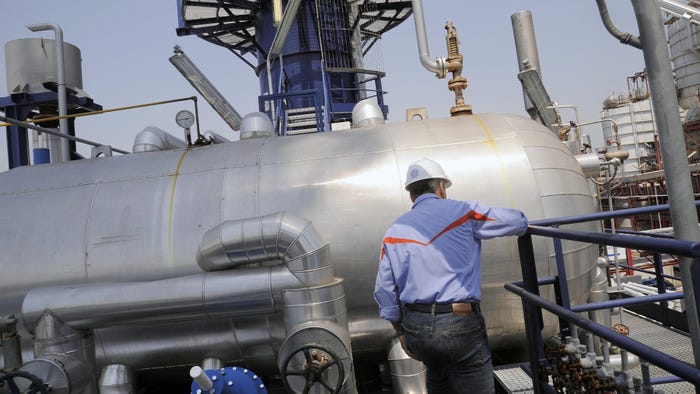ECL Shares Details of ‘World’s First’ Hydrogen-Powered Data CenterECL Shares Details of ‘World’s First’ Hydrogen-Powered Data Center
The ambitious hydrogen-powered data center concept supports high-density GPU deployments and draws zero power from the grid.

Data center operators have been increasingly looking for alternative power sources to fuel their processing needs, which are growing exponentially with the advent of AI.
Colocation provider ECL believes it has found that solution in a hydrogen-powered data center that draws no power from the electric grid, generates water, and has a PUE of 1.1.
The company’s MV1 facility is located in Mountain View, Calif. It is the prototype for what the company hopes will be a series of sustainable, modular, built-to-suit data centers designed from the ground up to support the high-density GPU deployments of up to 75 kW per rack.
ECL claims it can deliver new facilities in under 12 months, rather than the usual two to three-year process of building a traditional data center.
MV1 is a one-megawatt design but fully modular, so more capacity can be added on as needed, said Yuval Bachar, founder and CEO of the company, who previously held top engineering, infrastructure, and architecture roles at Microsoft, LinkedIn, Facebook, and Cisco.
The facility is relatively modest in data center terms, but Bachar said the modular, hydrogen-powered data center concept has been designed with scalability in mind.
“We’re proving the technology 100% to be able to scale out as big as we want,” he said. “And we’re already in the pipeline multiple projects which are larger, much larger, that will scale up multiple of those units that the one we have.”
Hydrogen-powered data centers are not a new concept, but they have yet to catch on in the industry. According to AFCOM’s State of the Data Center 2024 survey, only 16% of respondents believe hydrogen-powered data centers are gaining traction – while 59% believe solar power is gaining traction and 28% believe wind power is gaining traction. ECL is hoping to change that.
'A Zero-Emission Site'
ECL’s first customer, bare-metal GPU provider Cato Digital, bought up all of the capacity of the MV1 facility. It will start by bringing 84 Nvidia DGX servers and later adding a further 44 for a total of 1,800 GPUs running AI-as-a-Service operations.
Bachar notes that the average cost to build a one-megawatt data center is between $14 and $15 million, but ECL’s hydrogen-powered data center comes in at about 30% or 40% less. The cost to operate these facilities is much lower because it uses hydrogen power rather than the local power grid, he said.
Hydrogen may be the most abundant element in the universe, but it still isn’t free. Regular hydrogen deliveries have to be made to fuel the data center, but that hydrogen is 50% less than the cost of an equal amount of diesel fuel, according to Bachar.
“It’s definitely better pricing than running only on diesel generators. But it’s also stainable, so you get much more than just the price to operate it. It’s actually a fully sustainable, zero-emission site,” he said.

The Fusina hydrogen power station near Venice, Italy (Image: Alamy)
So long as it has a regular source of hydrogen, an ECL data center can be placed anywhere. And instead of consuming vast amounts of water like most data centers, the MV1 facility actually creates water in the power generation process, which ECL gives back to the local water supply.
Bachar says ECL has about 20 patents for power distribution, power collection, and cooling. The operator uses its own custom cooling technology that includes rear door heat exchangers. With the 2.0 version of its cooling technology, the company expects to push the racks to be capable of cooling up to 125 kW. That is slated for the second or third quarter of next year.
Analysts Sound Off
Jabari Williams-George, senior research analyst with the Uptime Institute, says “[ECL] are achieving what most people dream of achieving, being able to one source the hydrogen-producing power on-site, and on top of that, get cold and hot water streams.”
However, other industry analysts are not completely sold on hydrogen as a power source, noting that the technology has been around for decades and hasn’t caught on.
“The industry has been talking about hydrogen power fuel cells for 40-50 years,” said Jack Gold, principal analyst at J.Gold Associates. “I remember 25 years ago, sitting in a meeting with [a large technology conglomerate], and them telling us that the next generation of laptops would be hydrogen-powered because you don’t have to worry about charging [the devices]. That never happened.”
Ashish Nadkari, analyst with IDC, added: “From what I see, the biggest concern is one, how reliable is the supply of hydrogen, and two, how much hydrogen do they need to keep the lights on? Are they going to run out of hydrogen every day? Do they need to fill up every day, two days, three days?”
Skepticism aside, it’s clear that data centers must develop new solutions to tackle today's power constraints, especially with the soaring demands of AI. ECL expects to launch new hydrogen-powered data centers in the coming months.
About the Author
You May Also Like







